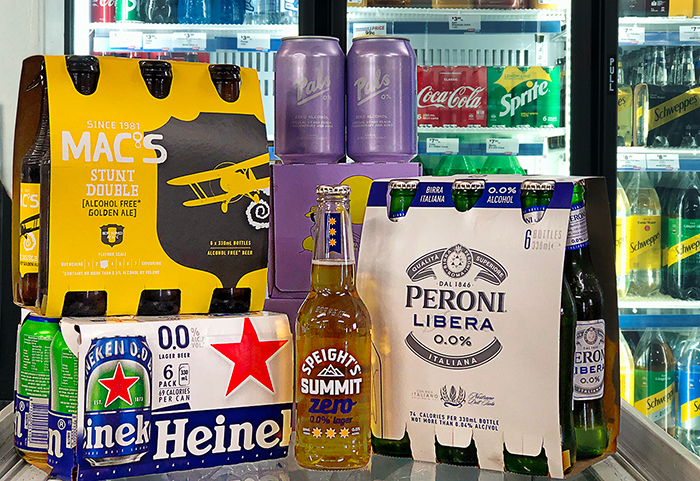Simply Central: enjoying less alcohol
Mary Hinsen
25 July 2021, 9:36 PM
 There is a wide range of low alcohol wine, available to those who like to enjoy a drink, but want to cut down the alcohol.
There is a wide range of low alcohol wine, available to those who like to enjoy a drink, but want to cut down the alcohol.It’s Dry July, but not everyone wants to completely cut alcohol forever. We look at strategies for reducing the amount we drink.
Simply Central is a home and lifestyle series for your Sundays. We take a look at what’s hot, what’s not, and everything lifestyle.
Many people like the positive effects they feel after not drinking for Dry July – but what about when July is over? Wine plays a big part in the Central Otago lifestyle, as do locally brewed beers, ciders and spirits.
Safe drinking is moderate, appropriate drinking. The liver can only break down a certain amount of alcohol per hour, which for an average person is around one standard drink. The alcohol.org.nz website has a lot of interesting information about factors that affect the speed at which we metabolise alcohol.
The Central App asked a group of people who are participating in Dry July for their suggestions for moderating alcohol consumption going forward. We’ve summarised the answers we received.

Many beer manufacturers are now offering low or no-alcohol alternatives.
Slow down!
Nursing a drink and pacing yourself allows you to enjoy the fun of drinking in a social setting, with the comfort of staying in control. If it takes one hour to metabolise one standard drink, then this is a good rule of thumb. Pace yourself at one standard drink per hour.
Watch how much you pour.
Pay attention to the drinks you’re pouring. If a bottle of wine states it contains eight standard drinks, you’ve poured four and the bottle is empty, each of those four drinks you poured contains approximately two standard drinks, or 20 grams of pure alcohol.
Measure your alcohol.
Eat both before and while you’re drinking.
After a drink is swallowed, the alcohol is rapidly absorbed into the blood through the stomach and the small intestine, with effects felt within 5 to 10 minutes after drinking. It usually peaks in the blood after 30-90 minutes and is carried through all the organs of the body.
Food in the stomach dilutes the alcohol and dramatically slows its absorption into the blood stream by preventing it from passing quickly into the small intestine.
Eat before you go to a party or social gathering where you will be drinking, don’t start drinking on an empty stomach.
Then, eat during the evening while you are drinking.
Plan on one or more regular alcohol-free days per week.
If you have a day where nothing special is happening, where no social events are planned, don’t drink. You’ll feel better for it.
A few people commented that even just a week without alcohol, a few drinks at a social occasion was a reminder the next morning about how good your body feels when you have a break from alcohol.
Find low alcohol or no alcohol alternatives.
There are a lot of options out there. You can go no-alcohol, or low-alcohol and no-one else would notice the difference at a social occasion.
Alexandra Super Liquor’s Mel Ferguson says there’s a wide range of options, something to suit all tastes.
“Even just going low alcohol, we stock a lot of great options, and also a lot with zero alcohol.
“There’s so much more than there used to be.”
Images Mary Hinsen
Advertisement

